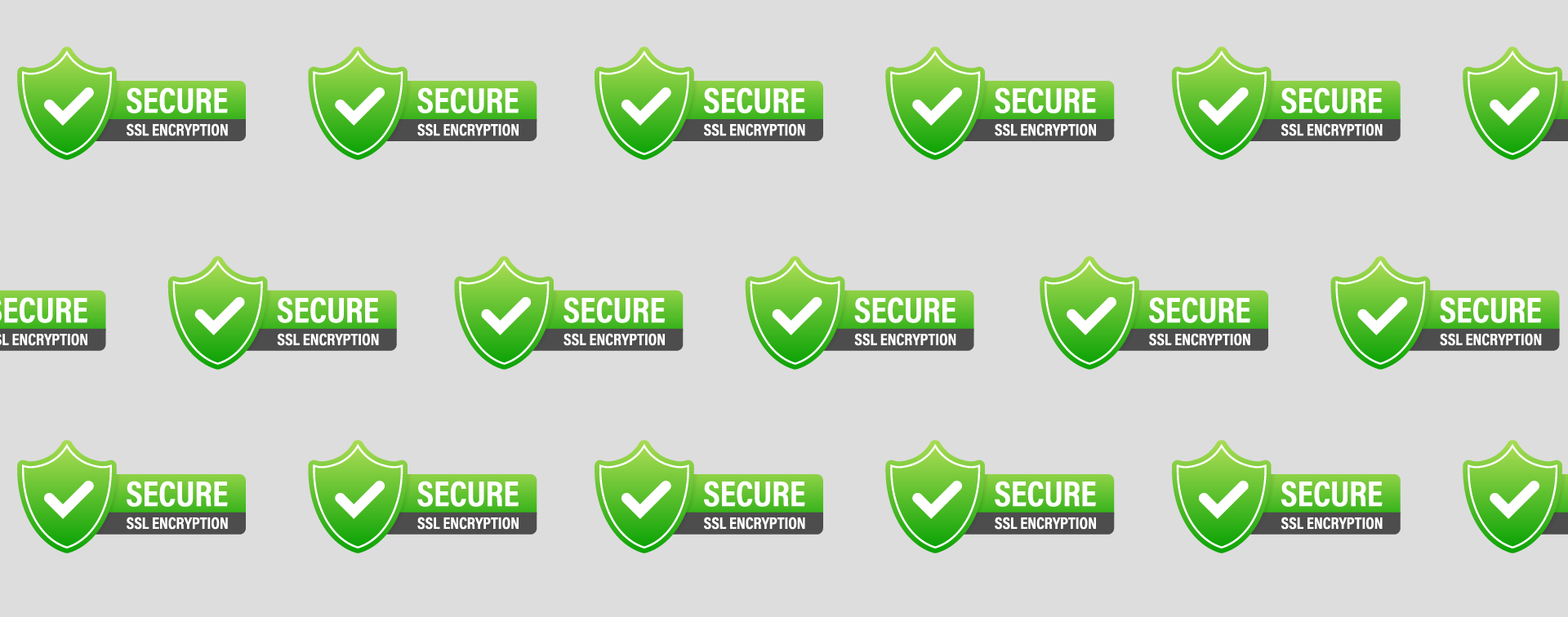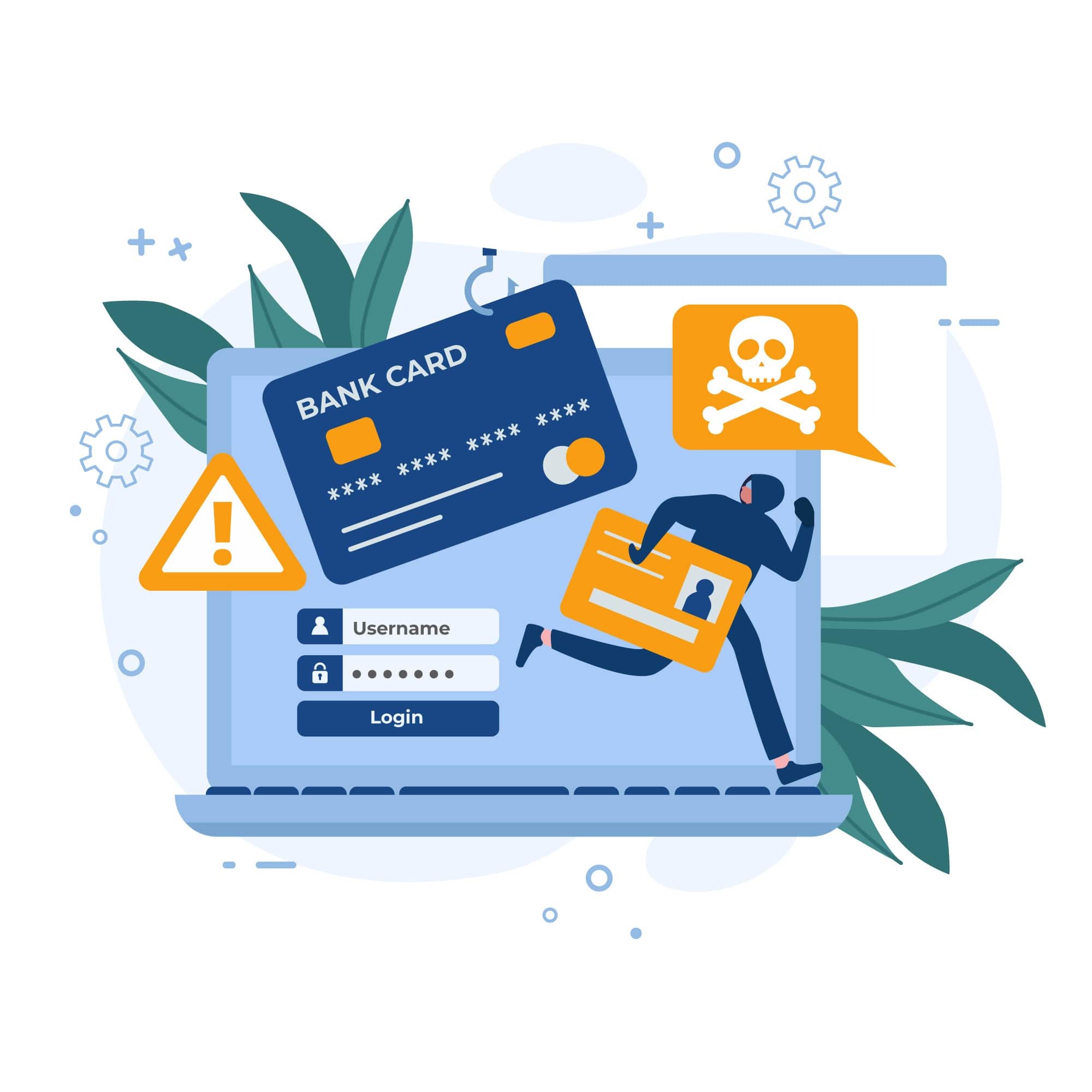
SSL Certificate: What It Is, How It Works, and How to Get One
It doesn’t matter what industry you’re in or what audience you cater to; you need to make people feel safe while visiting and engaging with your website. To do that, you’ll need to obtain a Secure Sockets Layer (SSL) certificate. Having an SSL certificate is one of many signs that your website is secure, especially if users conduct financial transactions or exchange other sensitive data on your site.
What is an SSL certificate?
An SSL certificate is a basic security measure that protects data as it moves from a website to a web server. If you submit a payment, log in to an account, or subscribe to a newsletter, an SSL certificate will prevent cybercriminals from stealing that information in transit. You’ll know if a website has one if the URL begins with “https” (where the “s” stands for “secure”) instead of “http,” and a padlock icon appears next to the URL. If the “s” is missing, the website is not secure.
It’s important to note that SSL certificates protect data in transit, not data stored on a website. If you’re a website owner, you’ll need to follow website security best practices to secure any visitor data stored on your site. If you’re a visitor concerned about how a website is storing and protecting your information, review the site’s privacy policy and look for a verified trust seal.
What’s the difference between SSL and TLS?
SSL and TLS (Transport Layer Security) are cryptographic protocols designed to secure data transmitted over the internet through encryption. SSL was the original protocol developed to protect data in transit, but as security threats evolved and vulnerabilities were discovered, it became outdated. When SSL was deprecated, TLS was introduced as a more advanced and secure successor, offering stronger encryption algorithms and enhanced security features to better defend against modern cyber threats. While many people still refer to these protocols as “SSL,” secure websites today actually use TLS certificates for data protection.
How an SSL certificate works
An SSL certificate encrypts any data entered into your website until it reaches its destination, where it is then decrypted and processed. Encrypting this data secures it against attacks such as a ‘Man in the Middle’ attack, where that data is intercepted before it reaches its destination.
Imagine purchasing an item online. Once you reach the checkout page, you’ll be asked for a variety of personally identifiable information, including your name, email, and payment details, such as your credit card number and CVV. Without an SSL certificate, this sensitive information is sent without encryption and is vulnerable to many different attacks. With an SSL certificate in place, an attacker would receive encrypted data with no key or no means to decipher the data.
Before we delve into how to get an SSL certificate for your website, you might be wondering what other benefits an SSL certificate provides. Here are some of the most common benefits for website owners:
User Security: As mentioned above, the primary beneficiary of an SSL certificate is the website visitor. Whether it helps secure credit card data or just ensures that login pages are secure, the value added to your visitor’s experience is increased noticeably.
SEO ranking: If Google deems your site insecure, it will likely result in a loss of SEO rankings and, in turn, a loss in potentially valuable traffic. So, even if you don’t collect data from your visitors, it’s beneficial to have an SSL certificate to help present a secure website to maintain a strong positive search engine presence.
User Confidence: Taking the time to secure your website instills trust in visitors, especially those who want to initiate a financial transaction or conduct other business through your site.
Does my website need an SSL certificate?
All websites will benefit from an SSL certificate, but you should absolutely get one if you:
Collect user data on your website: Any website that collects any kind of data should have SSL security. It’s especially crucial if you take payments on your eCommerce site, but it can also protect your admin login credentials or email addresses collected. Without the protection provided by an SSL certificate, that data is at risk and could be very useful in the hands of cybercriminals.
Want to keep visitors coming back: Even if your website doesn’t collect data, it is worth investing in an SSL as a signal to your visitors that you care about their safety. Popular web browsers like Chrome and Firefox will flag websites as insecure if they don’t have an SSL certificate—even if they don’t collect data. This could be alarming to visitors, which is by design. In fact, 27 percent of consumers worry about their information being compromised, so an SSL certificate would be worthwhile just to put their minds at ease.
Want to rank well in search results: An SSL certificate is also worth the investment if doing well in search results is important to you. As a way to encourage websites to use SSL certificates, Google has used HTTPS as a ranking signal since 2014. This means that websites with SSL certificates rank better in search results than sites that don’t, and that’s something every website can benefit from.
Which SSL certificate is right for you?
Something to keep in mind when researching how to get an SSL certificate: they aren’t a one-size-fits-all security solution. Obtaining the wrong certification can be an expensive mistake, as pricing spans a wide range depending on needs.
Validation levels and types
Before you start the process of getting an SSL certificate for your website, you need to figure out which validation and type of certificate you’ll require. The answer will depend on you knowing what actions you want your users to be able to take when they land on your site. The different validation levels available include:
Extended Validation Certificates (EV SSL) - EV SSL certificates provide the highest level of security by verifying both the domain and legal identity of the organization. This type is the industry standard for eCommerce websites.
Organization Validated Certificates (OV SSL) - OV SSL certificates validate the domain ownership and organization identity, providing moderate trust by verifying the business behind the website.
Domain Validated Certificates (DV SSL) - DV SSL certificates offer basic encryption and verify only domain ownership, making them the quickest and simplest type of SSL certification with minimal identity verification.
The different types of SSL certificates available include:
Single Domain Certificates - Single Domain SSL certificates secure both the WWW and non-WWW version of a single domain. They are ideal for individuals or businesses that need encryption for one specific domain without any subdomains.
Wildcard SSL Certificates - Wildcard SSL certificates secure a main domain and all its subdomains under a single certificate, making them ideal for businesses with multiple subdomains needing encryption.
Multi-Domain SSL Certificates (SAN) - Multi-Domain SSL certificates allow a single certificate to secure multiple different domains, simplifying management for businesses with several domains.
Unified Communications Certificates (UCC) - UCC SSL certificates are designed specifically for Microsoft Exchange and Office Communications environments but can also secure multiple domains, making them useful for enterprises.
How do I obtain an SSL certificate?
Once you’ve determined the type of certificate your website needs, it’s time to figure out how to get an SSL certificate. Steps include:
Generate a Certificate Signing Request (CSR): A CSR is a report generated by your server with important details for the SSL (like your domain name, organization information, public key, etc.).
Purchase an SSL for your website: You can generally partner with your web host to get an SSL certificate, but it’s ideal to go directly to a trusted Certificate Authority (CA) like Sectigo.
Submit the CSR to the CA: Once the SSL is purchased, it needs to be issued correctly. The CSR contains the information necessary for the SSL to be issued correctly.
Install the SSL: Once the CA has received the CSR and validated the information, they will issue the SSL certificate (which contains multiple files, typically). There are several ways to install the certificate once it has been issued, but these depend on your server and hosting provider. We recommend contacting your CA for help and reviewing your hosting company’s knowledge base for specific installation steps.
Once your SSL is in place, your users will appreciate the security the certificate provides—and your endeavors will be even more successful as a result.
Is an SSL certificate all I need to protect my website?
Again, SSL security only protects data in transit as it moves from your website to a server. They don’t protect data stored on your website or stop malware that can expose that data, nor do they block malicious bots like the ones that cause DDoS attacks.
To fully protect your website, we recommend the following:
Create backups regularly: If something goes wrong, you’ll have a clean, recent copy of your site to restore from.
Install software updates promptly: If your website is run on a CMS like WordPress, installing updates is critical as they usually contain critical security patches. You must also keep any plugins you use updated.
Use strong, unique passwords: Reusing a password puts all of your accounts at risk if that password is exposed. Use a trusted password manager to safely store all your different passwords!
Block bad bots with a WAF (Web Application Firewall): A WAF blocks malicious traffic that can slow your site or cause DDoS attacks.
Scan your website daily for malware and vulnerabilities: A website security scanner is the fastest and easiest way to look for threats every day—especially if the scanner can remove malware automatically.
While SSL certificates are just one part of cybersecurity, they are critical in protecting the information you and your visitors share online every day. By protecting that data as it travels from site to server, SSL security ensures valuable information is not intercepted by cybercriminals. Using an SSL certificate on your site also helps put visitors at ease while improving your chances of ranking well in search results.
If you have further questions or are looking for additional tips or products to help secure your website, get in touch with SiteLock today.





